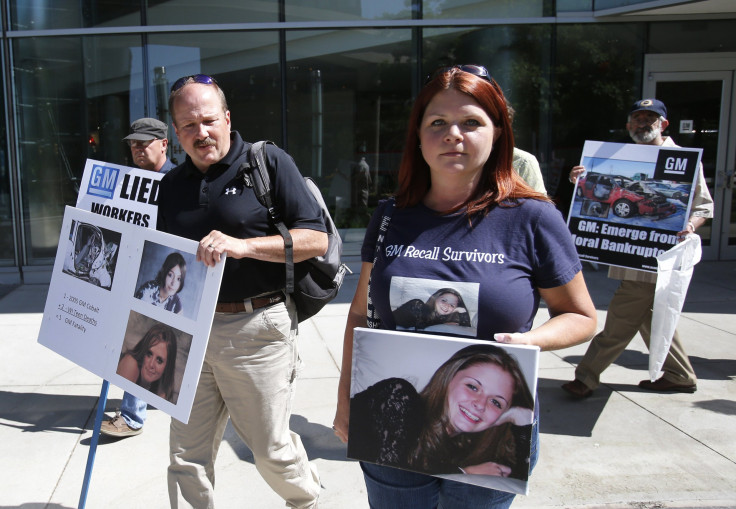Two GM Lawyers, Quality Control Executive Among Those Pushed Out Over Switch

(Reuters) - Two product litigation attorneys and a quality control executive are among the 15 employees who have been forced out by General Motors Co (GM.N) over the company's poor handling of a defective ignition switch linked to at least 13 deaths, according to two people familiar with the decisions.
Attorneys Jaclyn Palmer and Ronald Porter, who had settled several of the cases involving Chevrolet Cobalt cars involved in accidents where the air bags did not deploy, are no longer at GM, said the sources, who asked not to be identified discussing names the company has not public disclosed. Director of Field Performance Evaluation Maureen Foley-Gardner, also was pushed out.
None of the three employees identified by Reuters on Monday could be reached on their personal phones for comment. Their names were no longer recognized at the main GM switch board. GM declined to comment.
GM has said that 15 employees are "no longer" with the company due to their handling of the switch recall. GM announced the departures along with the results of an internal probe last week, and Reuters has now identified a total of 11 of the 15, mostly lower level employees.
Last week, GM said it fired two engineers who had been on paid leave and sources identified six other executives forced out. The most senior identified by Reuters is Michael Robinson, the former North American general counsel who later became vice president for environmental, sustainability and regulatory affairs.
The GM report particularly blamed the legal team for failing to act on signs of a safety issue, although General Counsel Michael Millikin kept his job. Three attorneys have left, in addition to Robinson and the two identified on Monday, taking the total to six.
Foley-Gardner's exit has not been reported, while other media have identified Palmer and Porter as two of the 15 no longer with GM.
CEO Mary Barra said last week that, of the 15, "some were removed because of what we consider misconduct or incompetence. Others have been relieved because they simply didn't do enough: They didn't take responsibility (and) didn't act with any sense of urgency" to investigate causes of fatal crashes and inform senior management.
The defective switch can disable air bags, making crashes much more dangerous.
Palmer first learned of an issue involving nondeployment of air bags in a Cobalt in November 2006, and over the next several years handled or was told of several cases involving the same issue, according to the company's internal report released last week.
In a January 2011 meeting where company attorneys reviewed potential legal settlements, Palmer discussed company investigators' theory that airbag nondeployment might be related to the ignition switch, according to the GM report. The meeting was attended by at least three other attorneys, including Porter, who also were forced out.
The particular case from the January meeting was settled shortly after, but later that month, another executive asked Palmer for a meeting to discuss the Cobalt issues. It took several months for that meeting to convene, according to the internal report, which frequently criticized a lack of urgency at GM.
Porter also was involved or familiar with several cases involving Cobalts in accidents where air bags did not deploy, including one in which plaintiff's lawyers showed that GM had changed the switch design without changing the part number. That explained a key question for GM engineers investigating the issue, but the report noted that it still took months to initiate the recall.
Foley-Gardner was a member of a high-level executive committee charged in December 2013 with investigating whether a recall of the Cobalt was necessary, according to the report, which noted that it took until February to initiate a recall. At least three other executives who have been forced out were on the committee.
© Copyright IBTimes 2024. All rights reserved.





















